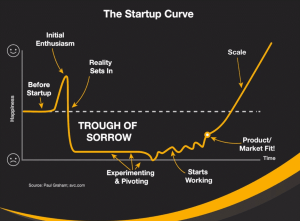By: Sarah-Julie Woumgnoa Tchokouani
 Intellectual property law gives creators exclusive rights to exclude others from taking newly created information without permission or from marketing competing embodiments of the new information. Although every area of IP protections are important, I am going to focus on patent law protection. Patent law provides a right to the inventor to exclude others from making, selling, offering to sell, or importing a patented invention. Compared to other areas of intellectual property the duration of patent protection seems to be relatively short, however, 20 years is a lot of time to make an astronomical profit from your invention.
Intellectual property law gives creators exclusive rights to exclude others from taking newly created information without permission or from marketing competing embodiments of the new information. Although every area of IP protections are important, I am going to focus on patent law protection. Patent law provides a right to the inventor to exclude others from making, selling, offering to sell, or importing a patented invention. Compared to other areas of intellectual property the duration of patent protection seems to be relatively short, however, 20 years is a lot of time to make an astronomical profit from your invention.
Five important points you should remember about patent protection
- Discoveries and unstructured ideas cannot be patented
- If one discovers something, it is not patentable because he/she did not create it; patent law does not give protection to discoveries. Patent law also does not give protection to unstructured ideas; the inventor must bring that idea to life through a detailed drawing, description, or prototype.
- Patent protection is not universal
- Each country governs how patents are handled in their respective country; no country can issue a patent that will be enforced globally
- First to file the patent wins
- If there are several people filing for the same patent, whoever files first receives the patent; it does not matter who actually created the invention first.
- Patents are very expensive
- In addition to the application fee itself, there are a lot of costs associated with pre-filing responsibilities such as attorney fees.
- Patents can take a long time to be granted
- Patience is a virtue, especially when applying for a patent. On average it takes about three years from the date you file to be granted a patent.
THE BIRTH OF INTER PARTES REVIEW
In 2012, Congress passed the Leahy-Smith America Invents Act (AIA). In addition to several other provisions in the Act, the AIA gave the United States Patent and Trademark Office (USPTO) the authority to determine the validity of patents after it has already been granted through a process called inter partes review (IPR). Through the IPR process, Congress was seeking to minimize the time and costs associated with dealing with patent infringement cases. Prior to the enactment of the AIA, a defendant being sued for patent infringement could request for the USPTO to complete a full re-examination of the validity of the patent at issue or the defendant could challenge the patent through a jury trial within the Circuit Court system. However, because of the IPR process, a defendant can now seek to invalidate a patent based on published prior art by filing a petition with the USPTO. The plaintiff may then file a response. The Patent Trial and Appeal Board (PTAB) reviews the documents and if it determines there is a reasonable challenge, it will hold a trial hearing. Subsequently, the PTAB will either rule that the plaintiff’s patent is valid or invalid.
 Since the enactment of the AIA, the IPR process has come under heavy criticism from participants of the patent world, ranging from patent attorneys, to independent inventors, to pharmaceutical firms. Unfortunately for the underdogs in the business world, the IPR process has become another tool for big companies to bully smaller businesses and get their patents canceled. In the year of 2017, about 75% of IPRs resulted in the PTAB canceling inventors’ patent protection. Hence, the PTAB perpetuating its notorious nickname of the “patent death squad”.
Since the enactment of the AIA, the IPR process has come under heavy criticism from participants of the patent world, ranging from patent attorneys, to independent inventors, to pharmaceutical firms. Unfortunately for the underdogs in the business world, the IPR process has become another tool for big companies to bully smaller businesses and get their patents canceled. In the year of 2017, about 75% of IPRs resulted in the PTAB canceling inventors’ patent protection. Hence, the PTAB perpetuating its notorious nickname of the “patent death squad”.
THE PTAB GIVETH AND THE PTAB TAKETH AWAY
In a highly anticipated case, Oil States Energy Services, LLC v. Greene’s Energy Group, LLC, SCOTUS issued its 7-2 decision in which it addressed two separate constitutional challenges to the IPR process.
- Whether IPR violates Article III of the Constitution (separation of powers) because it allows an administrative agency, not Article III courts, to cancel a previously granted patent owner’s rights.
- Whether IPR violates the Seventh Amendment (right to a jury trial) because it allows administrative judges, not juries, to adjudicate the validity of a patent.
The majority opinion answered “no” to both issues. In regard to the Article III challenge, the majority found that IPRs “fall squarely within the public-rights doctrine.” Accordingly, Congress has the authority to give the USPTO the power to validate or invalidate patents. The majority reasoned that patents are “public franchises” and that the IPR process addresses the same basic matter as the initial grant of the patent. The majority further explained that patent claims are granted subject to the qualification that they may be reexamined and canceled by the USPTO if it determines the patent was erroneously granted.
In regard to the Seventh Amendment challenge, the majority simply stated that it was resolved by the majority’s rejection of Oil States’ Article III challenge because “when Congress properly assigns a matter to adjudication in a non-Article III tribunal, the Seventh Amendment poses no independent bar to the adjudication of that action by a nonjury fact-finder.”
Luckily for inventors, although the line is pretty faint there is a silver lining in the Oil States case. The majority opinion emphasized that its holding was limited only to the two questions of the constitutionality of IPRs that were raised by the plaintiff. SCOTUS also pointed out that the holding should not be misconstrued to suggest that other constitutional challenges could not be made, such as whether the IPR process violates the Due Process Clause.
POSSIBLE EFFECTS OF OIL STATES ON INVENTORS’ PATENT RIGHTS
Although it is too early to see the implications of Oil States, there are a few foreseeable effects that inventors and smaller businesses should be cautious of:
- An increase of IPR filings by big companies
- Armies of lobbyists and lawyers that will influence politically accountable bureaucracies such as who sits on the PTAB panel
- Patent trolls who use patent laws to bring frivolous claims against the validity of your patent. A patent troll can be an individual, company, or even a troll doll!
*This post was authored February 6, 2019 and is posted with Ms. Tchokouani’s permission. The original post can be found here.
 Sarah-Julie is a third year student at Penn State Dickinson Law from Prince George’s County, MD. Having taken several business/corporate law related courses throughout law school in pursuit of a certificate in entrepreneurship law, she hopes to continue to cultivate her knowledge of business/corporate law and gain practical skills to best serve her future clients. She is also a proud alumna of THE Ohio State University.
Sarah-Julie is a third year student at Penn State Dickinson Law from Prince George’s County, MD. Having taken several business/corporate law related courses throughout law school in pursuit of a certificate in entrepreneurship law, she hopes to continue to cultivate her knowledge of business/corporate law and gain practical skills to best serve her future clients. She is also a proud alumna of THE Ohio State University.
Sources:
https://www.fr.com/news/update-implications-of-oil-states-sas-institute-inc/
https://www.law360.com/articles/1123510/patents-aren-t-property-judge-says-in-axing-100m-aia-suit
https://www.ipwatchdog.com/2018/11/27/constitutional-separation-powers-patents-invention/id=103751/
https://en.wikipedia.org/wiki/Oil_States_Energy_Services,_LLC_v._Greene%27s_Energy_Group,_LLC















